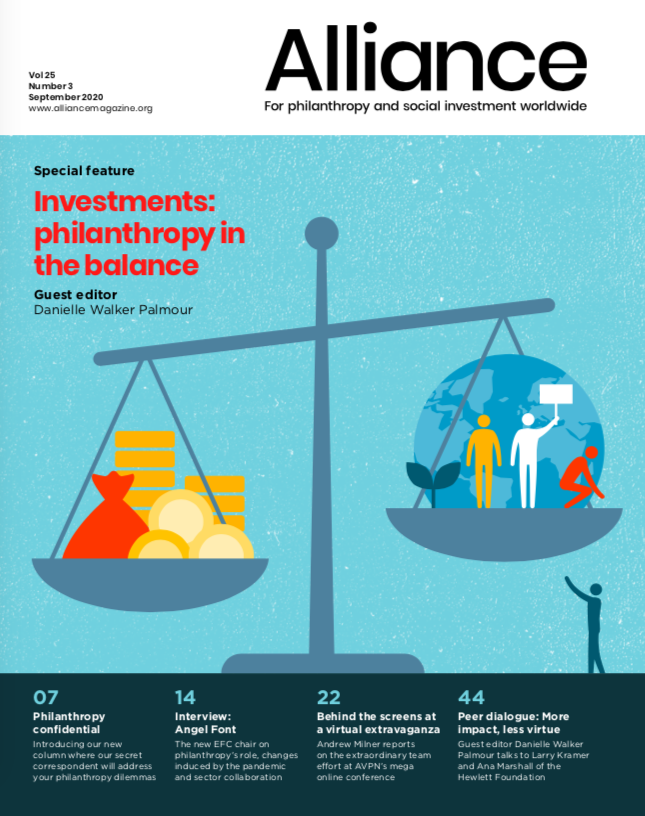The philanthropic world is facing mounting challenges. As the impacts of climate change, inequality, global pandemics and authoritarian populism increase, foundations are being called on and, in some cases, called out more than ever.
At the heart of debate is how foundations use their resources: not just the small amount on grantmaking and other charitable spending but the totality – most of it invested in global capital markets in sectors such as aviation and pharma, through vehicles such as hedge funds and private equity and managed by discrete investment houses, many of them unknown to philanthropy practitioners let alone the wider public.
For a vocal group who have arguably dominated sector debate recently, the current moment demands foundations spend more of their resources now and use the management of their investments to signal their values – and their virtue – even if it means eroding their assets.
But for others, perhaps the majority, the calculus is rather different. One important case is the California based Hewlett Foundation, one of the world’s most thoughtful philanthropies and significant climate funders. In their dialogue with Alliance guest editor, Danielle Walker Palmour, Hewlett’s president Larry Kramer and chief investment officer, Ana Marshall set out some remarkable and controversial terms for using their $10 billion endowment. Kramer rejects the ‘easier course’ to give more now. It may win praise from cash strapped non-profits, he argues, but it risks selling future generations short. Moreover, impact investing is of limited value for a fund of Hewlett’s size. ‘Thinking you change the system by impact investing is just nibbling around the edges while buying into the basic structure, and it’s the basic structure that needs to be rethought,’ Kramer notes.
So the Hewlett way is to make the most of the ‘basic structure’ of the capitalist system by paying the best asset managers to generate the greatest returns. And when you have assets of $10 billion you have access to superior fund managers – and therefore better returns – than if you are, say, a high-profile foundation with a small endowment.
Hewlett’s wager means investing in sectors, including fossil fuels, which generate returns and then using its own climate grantmaking to fight against the environment degradation that its investments in these industries cause. This approach may seem paradoxical but it is clearly intentional. Moreover, its insights might be instructive, not least its cautious engagement with asset managers.
But intentional or not, foundations need to be increasingly transparent now that investing in global capital markets is at the heart of philanthropic debate and public concern. Hewlett and others can rightly expect interest in who manages their investments, and who benefits. That is no bad thing. If nothing else, we hope this issue of Alliance advances the conversation about what we don’t know – with whom do foundations entrust their assets.
This issue also marks the arrival of our new column – Philanthropy confidential – our space for you to tell Regi, our secret philanthropy correspondent, what’s on your mind. A lot it turns out.
Charles Keidan is the Editor of Alliance magazine.







Comments (1)
Charles, We hope you are faring well in these challenging times for everyone. Since art can help families cope with COVID-19, we present to you our magazine published in collaboration with the National Endowment for the Arts, the National Institutes of Health, and the Johns Hopkins School of Medicine https://icaf.org/ArtforHealth. We invite your involvement in and support for the 6th World Children's Festival (WCF) next July 30th – August 1st at the National Mall, across from the U.S. Capitol. The WCF cultivates creativity and grows mutual empathy--valuable antidotes to many of the struggles our world is facing today. Your support will help the children create new hope for the future. Sincerely, Faith Faith Antonioni Communication Officer International Child Art Foundation P. O. Box 58133 Washington DC 20037 https://icaf.org Music clip (4 min) https://youtu.be/9aXKShuN1EY